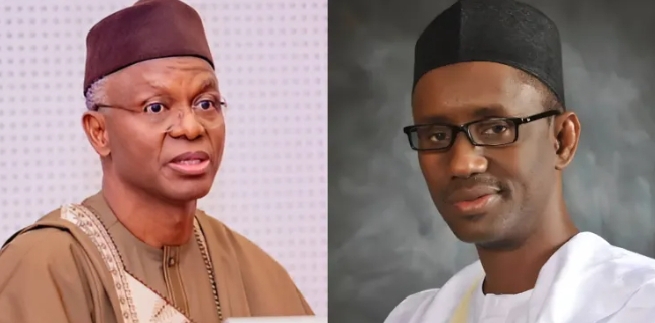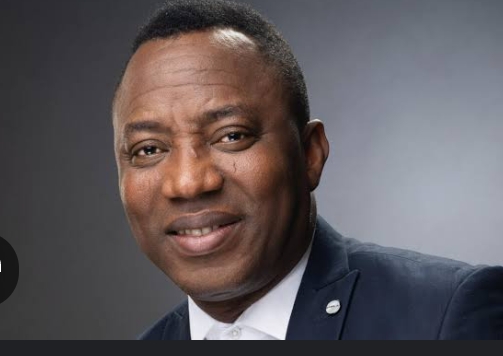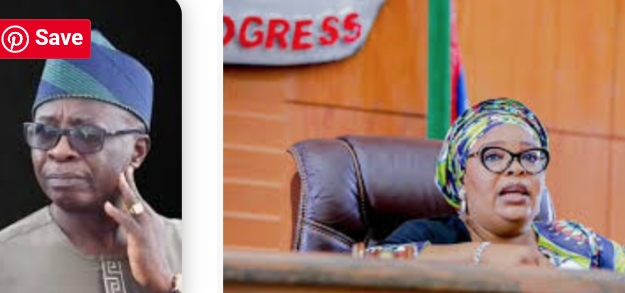News
Tariff Hike: Stop Deceiving Nigerians, Electricity Workers Tell FG

Workers in the nation’s power sector have asked the Federal Government to stop deceiving Nigerians over the 300 percent hike in electricity tariff, and called for it reversal to avoid further socioeconomic woes.
While advising the government to come clean on the hike and not be economical with the truth, they described the hike as nothing but another anti-people policy.
Under the aegis of the National Union of Electricity Employees, NUEE, the workers warned that if any of their colleague is attacked in the line of duty over the tariff hike, they would shut down power supply nationwide without notice.
In a statement titled “Hike in electricity tariff I – Danger looms”, Acting General Secretary of the Union, Dominic Igwebike, among others, “NUEE is one of the critical stakeholders in the electricity sector and it has been our major concern to see the delivery of constant, sustainable, clean, and affordable Electric Power to our dear Nation.
“There has not been any meaningful improvement since after the privatization of the Power Sector. The country has an installed capacity of about 14,000MW but generates about 4,803MW. But , Nigeria needs at least 30,000MW to reach sufficiency.
“The recent hike in electricity tariff from N68 /kwh to N225 /kwh is absurd in a country where the majority of the masses are grappling with basic survival and an electricity access rate of about 55 percent.
“The justification given by Nigerian Electricity Regulatory Commission, NERC, is that the hike is attributed to only Band A consumers who make up only 15 percent of electricity consumers and utilize 40 percent of the nation’s electricity consumption.
“It begs to understand the sensibility of the person(s) that uttered such a statement purporting that it would not affect the general public.
“They need to answer these questions: Who are the Band A consumers? What do they do? Who are the customers of the Band A consumers? Who bears the brunt of the electricity hike?
“The general public is the one that will be most affected by this. They are the customers and end-users of the Band A products and services.
The additional costs will be transferred to the common man, so they are indirectly being exploited, notwithstanding their dwindling purchasing power and increasing impoverishment.
“Let’s look at these two scenarios: 1. Company A, uses 1000 kwh of energy in manufacturing and works for 24 hours a day, with the current hike, his daily energy cost will increase from N50,592,000 to N167,400,000 which is an additional direct cost of N116,808,000 i.e 231 percent not to maintain the increase in the cost of their inputs as the costs of those will also be increased by the producers to accommodate their own increase.
“The price of Company A in Band A products will go up by about 300 percent and those in Band Z where there is no transformer will buy at the increased price. If they buy at a higher price, they are the ones paying the almost 300 percent increase, not the manufacturer purported to be taxed.
“2. Company B, increased the price of their products in line with their new economic reality, consumers don’t have the purchasing power to buy at the new rate, Company B will close down. As Company B closes down, some of its peers facing the same economic challenge will follow suit, and then unemployment will increase.
If that happens, insecurity will be on an upward trend, then the government will spend more than the money made in fighting insecurity which we have not been able to get hold of.
“The increased cost of goods will make Nigerian-produced goods unattractive as imported and smuggled items will be far cheaper. People will resort to those goods, thereby fueling the economy and employment situation of the countries of import.
“Our manufacturing and businesses will become comatose. The two scenarios above show that the hike in the electricity tariff is grossly detrimental to the economic diversification, growth, and well-being of Nigerians.
“This is why the US, UK, France, Germany, and other developed economies support their factories with billions invested in power subsidies. Why is Nigeria different? Electricity in Egypt is an average of N21.68 per kwh, and in South Africa, it is N226 per kwh.
“The minimum wage in Egypt is N78,360 while in South Africa it is N328,395. The minimum wage in Nigeria is N30,000 while the new electricity tariff is N255 per kwh. A country that genuinely has the interest of its people at heart and wants to grow will ensure that the real sector is given the most support it can get not putting a nail in its coffin.
“The he safety of our members is at stake, as they are at risk of being attacked by people in the community when they visit for disconnections of light.
“The Minister of Power and NERC did not consult with the stakeholders in the sector before the increase. The Minister of Power has relegated himself as the spokesperson for the the electricity distribution companies DisCos, where he is justifying Cost Reflective Tariffs.
“What of Service Reflective Tariffs as it relates to consumers? We as a stakeholder don’t know the Energy policy of the present administration.
“As a critical stakeholder in the Power Sector connected with Nigerians getting constant and affordable power supply, we state categorically that the hike in the electricity tariff is not beneficial to Nigerians and should be withdrawn.
“If any of our members is attacked or molested by customers in the course of performing his or her duties, we will down tools. Our position is that the hike should be reversed immediately.
News
2031: Ribadu replies El-Rufai, says he’s focused on helping Tinubu’s govt succeed

By Kayode Sanni-Arewa
Mr Nuhu Ribadu has countered former governor of Kaduna state, Mr Nasr El-Rufai over his unsavoury comments declaring that he would help his principal, Bola Tinubu succeed.
He said in a statement that he has not discussed contesting in 2031 with anyone.
PREMIUM TIMES reported that Mr El-Rufai on Monday accused Mr Ribadu of being behind his ordeal with anti-graft agencies. He alleged that Mr Ribadu was doing so because he is interested in succeeding President Bola Tinubu in 2031.
In his response, Mr Ribadu said in a statement that he has not discussed contesting in 2031 with anyone.
“For the avoidance of doubt, I want to put it on record that I have never discussed running for president in 2031 with anybody. All my focus and energy are geared completely towards the advancement of Nigeria and the success of the President Tinubu administration,” he said.
Messrs Ribadu and El-Rufai were friends and allies during the Obasanjo administration and that of the late Umar Yar’Adua. However, both men have become political adversaries although they are both members of the ruling party, APC.
In his statement, Mr Ribadu alluded to their history.
“If my silence wouldn’t risk being construed as consent, I would have ignored him. I am too preoccupied with my current assignment as to get into a media fight with Nasir El-Rufai or anyone else.
“Despite the incessant baiting and attacks I have never spoken ill of Nasir on record anywhere. This is out of respect for our past association and our respective families. I will not start today.”
Read the full statement below
I WON’T JOIN ISSUES WITH NASIR EL-RUFAI
My attention has been drawn to the interview granted by Mallam Nasir El-Rufai, the immediate past governor of Kaduna State Monday evening.
If my silence wouldn’t risk being construed as consent, I would have ignored him. I am too preoccupied with my current assignment as to get into a media fight with Nasir El-Rufai or anyone else.
Despite the incessant baiting and attacks I have never spoken ill of Nasir on record anywhere. This is out of respect for our past association and our respective families. I will not start today.
I however urge the public to disregard El-rufai’s statements against me.
For the avoidance of doubt, I want to put it on record that I have never discussed running for president in 2031 with anybody. All my focus and energy are geared completely towards the advancement of Nigeria and the success of the President Tinubu administration.
I therefore ask Nasir El-Rufai to allow me face my onerous national assignment just as I do not bother myself with his own affairs.
News
Angry Sowore slams security operatives at Abuja court gate who tried to block him

By Kayode Sanni-Arewa
Angry Omoyele Sowore, The Publisher of Sahara Reporters and former presidential candidate of the African Action Congress (AAC), Omoyele Sowore, on Monday clashed with security operatives who wanted to stop him from entering the Federal High Court in Abuja.
The security cordon of the court gate by operatives drawn from Nigeria Police Force and the Nigeria Security and Civil Defence Corps (NSCDC), was emplaced because of the trial of the former Kogi State governor Yahaya Bello.
Bello is charged with money laundering and misappropriation of public funds.
In a video posted on his X account on Monday, Sowore, singlehanded, dared the security operatives, questioning their authority to prevent his entry.
“Why are you shouting at me? Do I look like Yahaya Bello?” he asked.
“I have business in court. I don’t need to be cleared by either the police or EFCC because none of you is an officer of the court.
“This is a Federal High Court; bring court officials, and I will talk to them. EFCC brought me to court, and they are still harassing us.”
“You have no right to stand in front of the high court. You are not my lawyer and have no right to know my case,” he stated in response to a request by one of the security operatives to know the particulars of his case.
Overwhelmed by Sowore’s readiness to make big trouble and possibly expose the errors by the security operatives, one of the senior officers eventually directed that Sowore be allowed to enter.
Condemning the incident, Sowore wrote, “The justice system in Nigeria has been hijacked by uniformed, uncouth security agents ranging from @OfficialDSSNG, @PoliceNG, and @CivilDefenceNGR. Today, they mounted illegally in front of the court, harassing everybody because of a thief, Yahaya Bello @officialgybkogi. The same Yahaya Bello they couldn’t apprehend for months; even lawyers were harassed, and the @NigBarAssoc should stop this nonsense.”
In January 2025, Sowore was arrested and charged with 17 counts under the Cybercrime Act for referring to Inspector-General of Police (IGP) Kayode Egbetokun as an “illegal IGP” on his social media platforms.
In the charges, it was alleged that Sowore’s statements were intended to cause a breakdown of law and order.
Sowore’s arrest sparked criticisms from various human rights organizations, which viewed the charges as an attempt to suppress voice of dissent and freedom of expression.
News
Just in: David Setonji May Become New LSHA Speaker Meranda To Step Down

By Kayode Sanni-Arewa
The Speaker of the Lagos State House of Assembly, Princess Mojisola Meranda, may step down to allow either Mr. David Setonji or Mr. Wale Rauf to assume the position of speaker.
This development follows intervention efforts by prominent political figures, including former APC National Chairman and ex-Osun State Governor Chief Bisi Akande, former Ogun State Governor Aremo Olusegun Osoba, and Chief Pius Akinyelure, Chairman of the Board of the Nigerian National Petroleum Company Limited.
Meranda made history as the first female Speaker of the House on January 13 after the removal of Mudashiru Obasa, who faced allegations of corruption, abuse of office, and high-handedness. However, Obasa has since challenged his removal in court, arguing that due process was not followed.
Sources reveal that key political figures held an initial meeting with principal officers and House members over the weekend, with another meeting expected soon.
It is speculated that Meranda may be asked to return to her former position as Deputy Speaker, while one of the two lawmakers from Lagos West—David Setonji (Badagry 2) or Wale Rauf (Amuwo Odofin 2)—could become the next Speaker.
David Setonji is currently the Chief Whip of the House and has served as a lawmaker since 2015.
Wale Rauf has been in the House since 2019.
This arrangement is reportedly influenced by regional representation in state leadership. Presently, Governor Babajide Sanwo-Olu and Speaker Mojisola Meranda are both from Lagos Central, leaving Lagos West without a top leadership position. Given that Obasa hails from Lagos West, stakeholders have recommended that the next Speaker be chosen from the district.
Despite these developments, 36 out of 40 lawmakers passed a vote of confidence in Meranda on Monday, February 17, affirming their support for her continued leadership. However, the House adjourned sitting indefinitely, leaving room for further negotiations.
-

 Opinion23 hours ago
Opinion23 hours ago*OBASANJO’S WEEKEND PILGRIMAGE TO VATSA’S VILLAGE*
-

 News20 hours ago
News20 hours agoFG Shifts Council Meeting Amid Osun LG Crisis
-

 News22 hours ago
News22 hours agoSee How Naira Is Fairing Against The Dollar In Black Market Today February 24, 2025
-

 News22 hours ago
News22 hours agoSenate invites ‘Brekete’ Family host Ahmad over broadcast controversy
-

 News22 hours ago
News22 hours agoGazette Confirms Gowon Actually Ordered Awolowo’s Release, Not Ojukwu or Ironsi
-

 News20 hours ago
News20 hours agoJust in: Tinubu, Party Leaders Reach Accord On Lagos Assembly Crisis
-

 News23 hours ago
News23 hours agoFuel Crisis looming as Truck Drivers Protest Against Lagos Task Force
-

 News18 hours ago
News18 hours agoMore financial trouble for Nigerians as DStv, Gotv set to increase subscription fee







